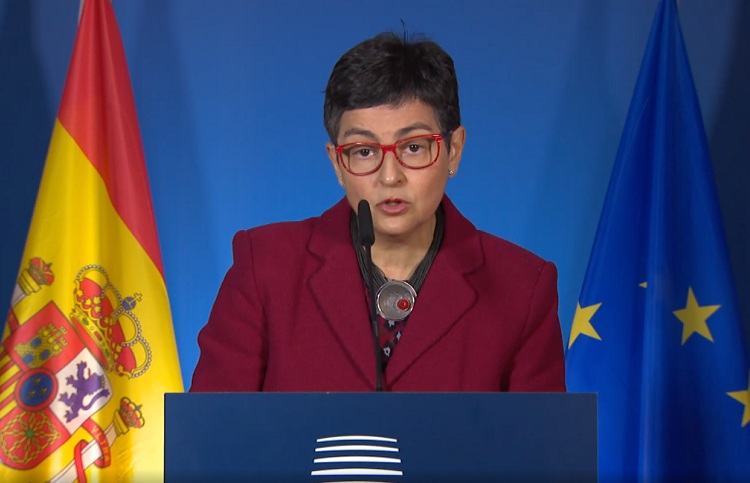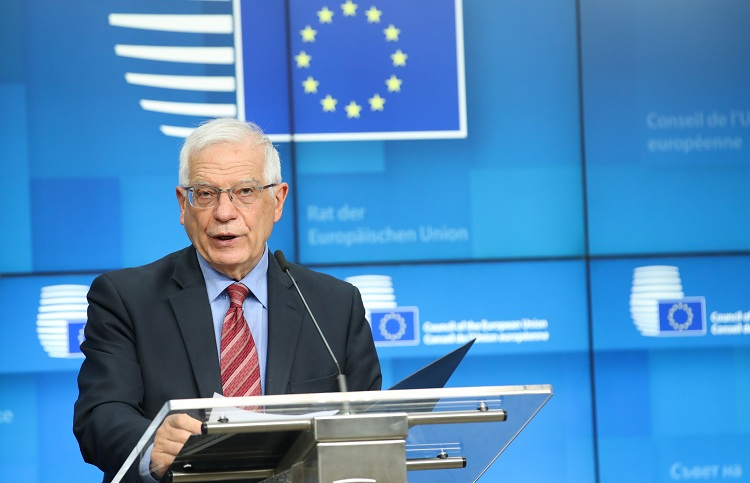Eduardo González
The Minister of Foreign Affairs, Arancha González Laya, assured yesterday, in response to the European Commission, that the travel restrictions imposed in Spain “are coherent” and are “perfectly aligned with EU recommendations”.
“Spain is scrupulously following all European recommendations on mobility by COVID”, González Laya assured during the press conference following the meeting of the Council of Foreign Ministers, held yesterday in Brussels, in response to statements by the Commission’s Justice spokesman, Christian Wigand, in which, after avoiding any comment on travel restrictions in Spain, he did ask Member States to ensure “coherence” between the measures applied for internal travel and measures for cross-border travel because “the risk of transmission is similar” in both cases.
“The European Commission has recommended that EU Member States should not close their borders for intra-EU travel, and that is what Spain is doing”, González Laya said. “The European Commission has also suggested that you travel only if necessary, that you travel with prudence and that whenever you travel you do so respecting the conditions of the destination, and this is what Spain is doing”, she continued. Apart from that, “the European Commission has also recommended to the Member States to color their maps at regional level according to the incidence of COVID in each of their regions, and that is what Spain is doing”, she continued. “Finally, the Commission has also recommended taking internal measures to prevent the increase of contagions within its territory, and this is what Spain is doing in each of its regions, in accordance with the co-governance agreed between the Government and all the autonomous communities”, she added.
“Spain is scrupulously following all the community recommendations to control the spread of COVID in our territory” and the measures adopted in the country “are coherent and aligned with the community recommendations”, González Laya asserted. “It is true that there may be a certain feeling of grievance on the part of our citizens”, because “there are Spanish citizens living in an autonomous community such as Madrid who cannot travel to the Balearic Islands but can travel to Frankfurt”, as “there are citizens in Frankfurt who can travel to the Balearic Islands but cannot travel to Bonn”, she admitted.
“That is due, simply, to the fact that each of the regions where these citizens are located has adopted guidelines that seem to them to be the best for controlling the transmission of COVID in their territory”, she said. “In the case of Spain”, according to González Laya, “any traveler arriving in our country is subject to a series of controls, including PCRs, which help us, within the limits of the Europeans who are currently traveling to our country, to control that no cases are being imported”. “Perhaps it is again appropriate to remind our citizens and the rest of EU citizens that this is the time to exercise the utmost caution, to avoid unnecessary travel and to help control the pandemic now, which is what will ensure that we can enjoy a summer more like 2019 than 2020“, she concluded.
Several German tourists landed this past Sunday in the Balearic and Canary Islands after the relaxation of the restrictive measures in these two communities for Easter, after the Ministry of Health and the autonomous governments agreed in early March the perimeter closure of all autonomous communities, except the islands, to avoid a fourth wave of the pandemic. Foreign tourists traveling to Spain at Easter will not be allowed to leave the region where they have landed and will have to present a negative PCR upon arrival in Spain or, otherwise, be quarantined.







